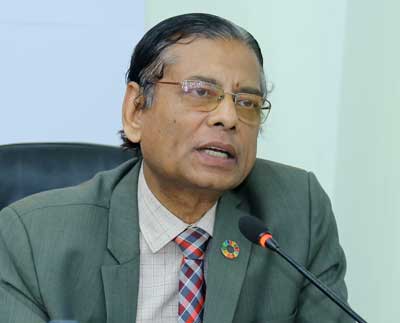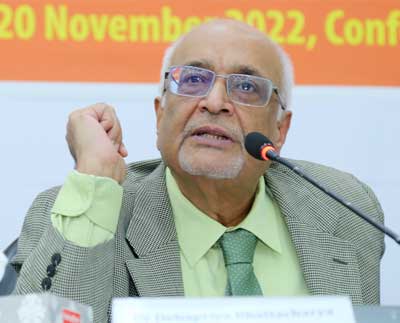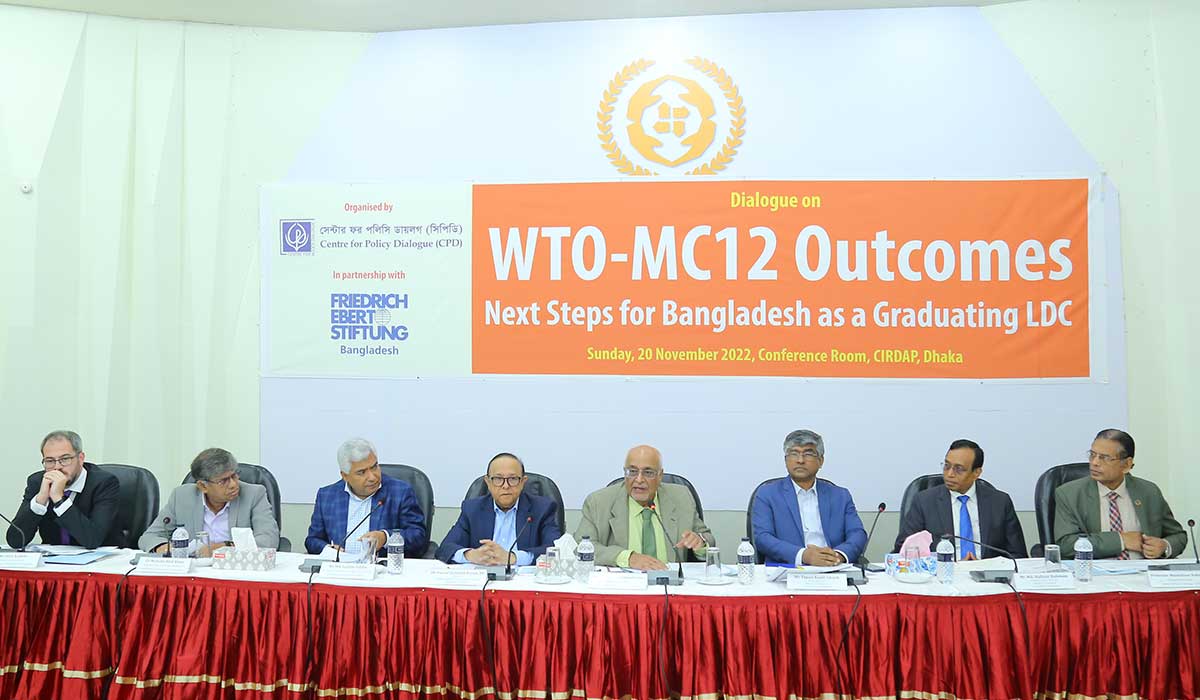Download Presentation
“Bangladesh should prepare for its future as a developing country”
This captioned message was transmitted from an event to discuss the twelfth World Trade Organization Ministerial Meeting (WTO-MC12) outcomes which was organised by the Centre for Policy Dialogue (CPD).
Bangladesh is set to graduate from the least developed country (LDC) category in November 2026. While shedding the LDC label comes with advantages such as improving the country’s image and higher credit rating, it will also give rise to new challenges. Bangladesh has been reaping the benefits of International Support Measures (ISMs), which will be lost after its scheduled graduation. This will have various implications for the export-oriented sectors as well as the domestic market-oriented industries and businesses. According to WTO Secretariat estimates, almost 90.0 per cent of all export losses of 12 graduating LDCs will be on account of Bangladesh. To ensure a smooth and sustainable graduation, Bangladesh will require strategies to move forward as a member of the WTO.
In the twelfth WTO Ministerial Conference (WTO-MC12), held in Geneva, Switzerland, Bangladesh, along with other LDCs, proposed for new ISMs for graduating LDCs. The proposal was to extend the market access from six to nine years after graduation, but later it had to be made more flexible in the face of opposition by powerful WTO members. Despite of several attempts, no commitments could be secured on the attendant concerns of the graduating LDCs through a set of new ISMs.

The MC12 outcomes focused on WTO reforms, Agreement on fisheries, Agreement on Agriculture, Food Security and Moratorium on E-Commerce taxation. Bangladesh should remain engaged in the discussions on these issues.
The above issues were discussed at a dialogue organised on Sunday 20 November 2022, at Centre on Integrated Rural Development for Asia and the Pacific (CIRDAP). The dialogue was organised by CPD with the title ‘WTO-MC12 Outcomes: Next Steps for Bangladesh as a Graduating LDC’ in partnership with Friedrich-Ebert-Stiftung (FES).
Dr Debapriya Bhattacharya, Distinguished Fellow, CPD, chaired the session. In his remarks he stated “The previous LDC graduates are small nations in terms of both population and GDP. Bangladesh’s graduation has greater relevance in terms of the global and local contexts when taking into account the size of the economy and people.”
In his welcome remarks, Mr Felix Kolbitz, Resident Representative, (FES), Bangladesh, said “LDC Graduation is an important point in Bangladesh’s journey towards development but there is still a whole lot of homework to do for Bangladesh to ensure a smooth transition during its graduation.”

Professor Mustafizur Rahman, Distinguished Fellow, CPD, delivered the keynote presentation and said that Bangladesh should take advantage of support measures for Graduating LDCs in various Trade-related areas after it graduates from its LDC status. European Union has already agreed to extend the period of LDC-specific market access by 3 years after graduation, which will help to ease the difficulties confronted by Bangladesh upon graduation.
In terms of stance regarding built-in mandate, it should be ensured that the concerns of graduating LDCs regarding protecting the interests of fisheries sectors and the livelihood of small-scale fishers are taken into consideration.

Issues of domestic support, cotton subsidies, special safeguarding mechanisms, public stock holding, export restriction, exemption for humanitarian food purchases under World Food Programme and improved transparency need to be discussed for the Agreement on Agriculture. Also, Bangladesh should try to be included in the WTO list of Net Food Importing Developing Countries (NFIDC) by 2026 so that it can continue with cash subsidy to exporters of agricultural products until 2030.
In terms of Moratorium on E-Commerce, the moratorium might cease to exist if no mutually agreed decision is taken in the upcoming MC13. Bangladesh should closely follow the developments in this connection in the WTO and calibrate domestic policies in view of this.
Professor Rahman stressed the need to design Bangladesh’s strategies by keeping in the perspective of the country’s future as a non-LDC developing country.

Commenting on the technical proposals given by the LDCs, Dr Mostafa Abid Khan, Distinguished Discussant, Trade Specialist and Former member of Bangladesh Tariff and Trade Commission, said “Even with technical solutions, like in the case of Fisheries Subsidies, WTO could not come up with a decision”. He mentioned that despite of LDC graduation being a major issue at MC12, the conference could not come up with a concrete decision due to opposition from other members, particularly the USA.
Mr Md. Hafizur Rahman, Director General, WTO Cell, Ministry of Commerce, Government of Bangladesh highlighted that the WTO decisions may not be beneficial for all members since these decisions are not being taken inclusively and with transparency. He expressed his concern that the LDC groups are also failing to put robust proposals on time and follow it up adequately. “Another emerging concern is that some WTO members are bringing on board non-trade issues and this might result in distraction from major trade related matters” said the Director General.
“It’s time for Bangladesh to start diversifying its export-oriented businesses, and not rely wholly on preferential market access” said the Guest of Honour Mr Md. Jashim Uddin, President, Federation of Bangladesh Chambers of Commerce & Industries (FBCCI). He added that currently twelve sectors are exporting in significant amount. The human resources in each of these sectors should be trained to enhance their skills. These industries should abide by environmental compliances properly so that these can be highlighted as their competitive advantage.
The Special Guest Mr Tapan Kanti Ghosh, Senior Secretary, Ministry of Commerce, Government of Bangladesh, said “It makes no difference if non-trade issues are being discussed in the WTO, because Bangladesh will still have to comply with these since these are already the requirements of developing countries”. He also underscored that Bangladesh will not face any adverse situation after LDC Graduation to the extent apprehended. This is because Bangladesh has high export performance despite of not having any preferential market access in the US.
“You do not get what you deserve, you get what you negotiate” said the Chief Guest Mr Yussuf Abdullah Harun, MP, Member, Standing Committee on Ministry of Commerce, Bangladesh Parliament. He clarified that Bangladesh needs to improve its negotiation skills and take the responsibility of preparing thoroughly for the post-LDC Graduation period and build up connectivity with peers at WTO to back the country’s causes.
In the open floor discussion, a number of participants pointed out that there is no point in attending the WTO Ministerial Conferences if a member is not involved in the Green Room Meetings, since important decisions are taken there. They suggested that it is time to stop relying on ISMs and focus on diversifying goods and services so that export levels can be maintained after LDC Graduation. The removal of Moratorium on E-Commerce may not benefit Bangladesh as the developing countries will be able to impose customs duty, increasing the cost of our services export. The MC12 outcomes failed to take into account current emergencies such as Russia Ukraine War and their impacts on low-income members. Emergent issues like these should be included in the discussions in the context of the upcoming MC13.
High-level policy makers, trade specialists, business leaders, academics, development practitioners, civil society activists, international development partners and journalists were present at the dialogue, many of whom participated in the discussions.


